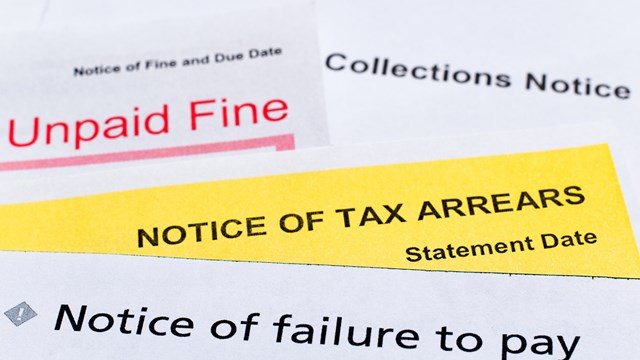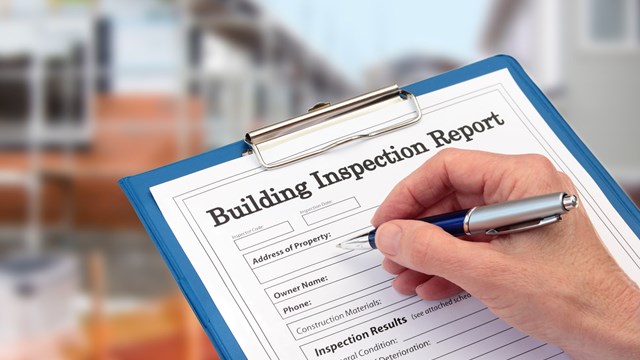
Instances of out-and-out fraud are rare in the world of condos and homeowners associations, but that doesn't mean you shouldn't look out for them and know how to spot signs of trouble.
Consider this—most board members are volunteers, and even if they're on the finance committee or elected as treasurer, they may not be financial professionals in real life. Sure, boards do have their own financial professionals, but how often do they interact with them?
That's why it's important for board members and their managers to know as much about their development's finances as they can, and know the warning signs that something may be amiss, either in the form of poor record-keeping or outright fraud. Once your board and managing agent know this information, they'll be able to recognize the signs of financial problems before they get completely out of control.
Get Informed
Usually, an association delegates its day-to-day oversight of its finances to the managing agent. Even so, the board's treasurer must keep in contact with the manager to make sure that the finances are in order.
Abe Kleiman, managing partner of Kleiman and Weinshank, a Manhattan-based accounting firm that provides audits for 180 condos and co-ops in New York and New Jersey ranging from units up to more than 1,700, says that in his experience, the management company typically acts as bookkeeper for the association, with oversight by the board treasurer.
"The management company can pay certain invoices without board approval—like utility bills or mortgage payments, for example. But repairs or improvements require approval by the board," he says. A third level of financial management, beyond the management company and the board, is the annual audit. He recommends this "three-layer" system.
"Many of my associations also are introducing finance committees, to make sure everything is comprehensive and accurate," says Gary Rosen, CPA, a shareholder in the accounting firm of Wilkin & Guttenplan, P.C. in East Brunswick, which audits and provides other services to more than 600 community associations.
Common Oversights
The professionals interviewed for this article named several common oversights and mistakes that many associations make in handling their finances. One, according to Rosen, who is a certified fraud examiner as well as a CPA, is providing for a transfer of funds from the operating budget to the capital or maintenance budget—but never actually transferring the cash.
Some boards, adds Jules Frankel, also with East Brunswick-based Wilkin & Guttenplan, allow the managing agent to have full access to the development or building's fund without requiring a second signature. Many associations, he says, will insist that only board members sign expenditures for replacement expenses—"If they don't," he says, "they're making a mistake."
When a managing agent gets a financial package, or statement, every month, that agent, "should be reviewing that with your board," Frankel says. "You should also be meeting with your accountant at least once a year to review the audit details, and meet with your investment strategist at least once a year."
As far as out-and-out fraud is concerned, by all accounts, it isn't that common. "As a certified fraud examiner, I've seen some developments where fraud has been going on, but it's not prevalent," says Rosen.
One spectacular example, or series of examples, of fraud and money mischief involving condo and co-op buildings occurred across the river in New York City in the mid-1990s. At that time, an investigation by the Manhattan District Attorney's Office found that managers of hundreds of co-op and condo buildings had routinely extorted payoffs, or kickbacks, from contractors for work in their buildings.
The investigators called the practice of extracting payoffs from the contractors in exchange for giving them business as routine as tipping the doorman. Some contractors went so far as to file tax forms to deduct the payoffs as business expenses. One contractor alone paid out $2 million in kickbacks over the last five years, according to coverage in the New York Times at the time.
However, Rosen doesn't think this had much of an effect on New Jersey condos and HOAs. "A lot of the controls New Jersey properties had in place were adequate," he says. "I didn't see a major difference as the effect of the scandal."
How Can You Make Sure?
No matter what the problem is, how can board members, managers and their buildings' professional financial advisors work together to make sure their community's money is being handled properly?
One control Rosen advocates is to have a comprehensive budget that allows the association to monitor finances on a monthly basis. This would ensure, for example, that the management would only claim snow-clearing expenses during the winter months. The board and management should also "have an investment policy to document how dollars should be invested out of each and every fund."
Kleiman's firm recommends that all significant contracts be bid out and that more than one proposal be examined for each job. Sometimes, he says, when a vendor does a good job, the association will keep calling it to perform needed work, leading to a close relationship.
Even if you have a great relationship, however, board members should compare their operating expenses to other buildings or associations to make sure that the contractor or vendor is charging you the proper price.
One item that is difficult to match up against other buildings, Kleiman continues, is payroll. "You can have a 180-unit development that has a great deal of services and another 180-unit development that has no doorman, just a superintendent. Some are comparable, others are not."
As always, the best tool any board has is overseeing whatever the managing agent is doing.
"Our firm has a database with a summary of income statements for the developments and buildings we represent, with expense categories in size order. We use it as an auditing tool," Kleiman says.
Red Flags
A trained accountant or fraud investigator knows how to find errors or evidence of wrongdoing in the association's money matters. But what are some indicators board members should pay attention to as signs that a problem might be brewing?
Frankel mentions as red flags, situations where the development is "not getting financial statements on a timely basis, things are not reconciling, the accounts receivable sub-ledger doesn't square with the general ledger, bank reconciliations are not being done on a timely basis, there are all sorts of excuses why the development is not getting financial [reports] on a timely basis." All of these, he says, are signs that something is amiss.
Attorney David Byrne, a shareholder with Lawrenceville-based Stark & Stark, adds some other indicators—for example, when the board is seeing expenses that its members don't recognize, when the recipients are unnamed vendors who again the board doesn't recognize, and that checks are sent out that haven't been reviewed by the board.
Even though the situation is admittedly rare, what should a board member, manager or financial advisor do if they find errors or evidence of wrongdoing in their building's money matters? In this case, the professionals we interviewed for this article had different opinions.
Kleiman says that the property manager should be contacted first. "In the case we ran into [of fraud], we first contacted the principal of the management company, then the board of our co-op. We contacted both the superior [of the person who was suspected of fraud], and then our client."
Rosen says that if the association manager is the suspect, then you should contact the board. If it's a board member who is suspected of cheating the co-op, then you should contact a professional CPA or an attorney.
Byrne says that "legal counsel is your first recourse," unless you don't believe that your development's management company is involved. In that case, "a financial management company would be a good place to go—they have security controls." And Frankel also says that it's a good idea to contact the association's attorney.
For misappropriating funds, an employee or board member can face jail time. However, once again, it's fairly rare. "In all my years [as an attorney in condo-related matters], I think I've been aware of only one management company that has been involved in fraud," said Byrne, who adds that in cases of fraud, embezzlers' woes don't end with criminal charges. A condo association or HOA can also sue a board member or employee for his or her actions, over and above any criminal penalties that might be involved.
Thankfully, says Byrne, management companies often require their employees—especially those who deal with money on a day-to-day basis—to be bonded.
To sum up, even though outright fraud in handling an association's money matters is very rare, costly errors can be made—and in any case, it's better to be safe than sorry.
Raanan Geberer is a freelance writer and editor living in New York City.






Leave a Comment